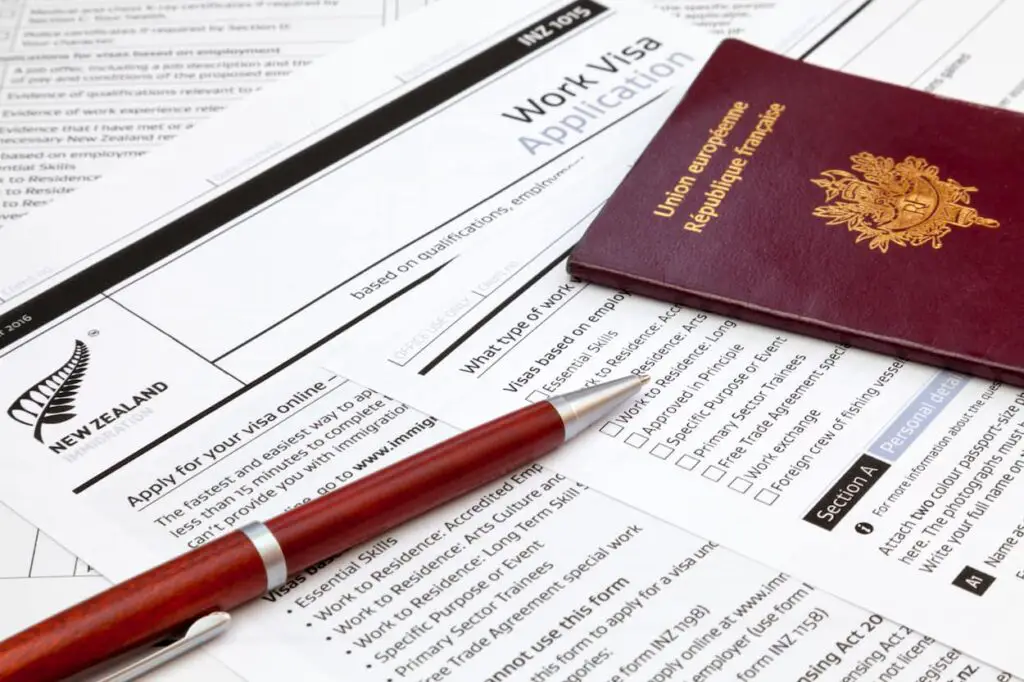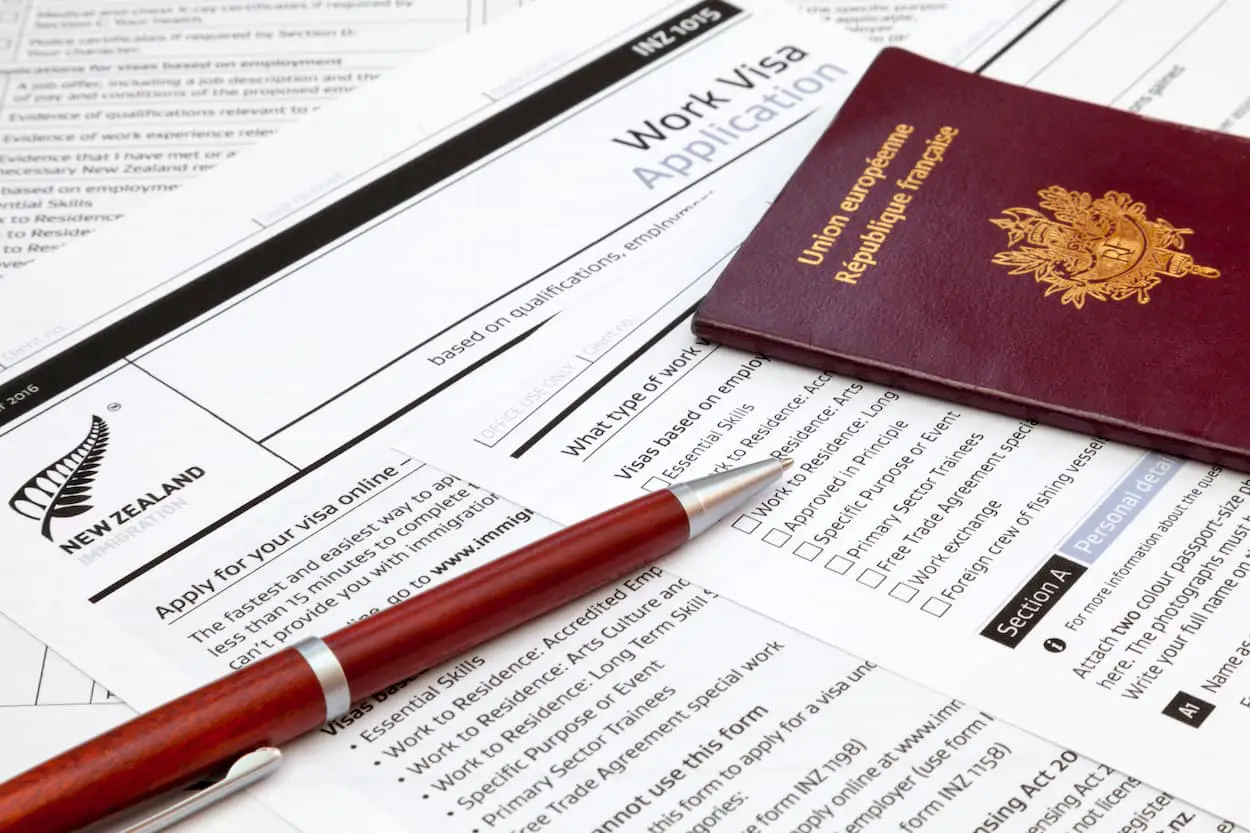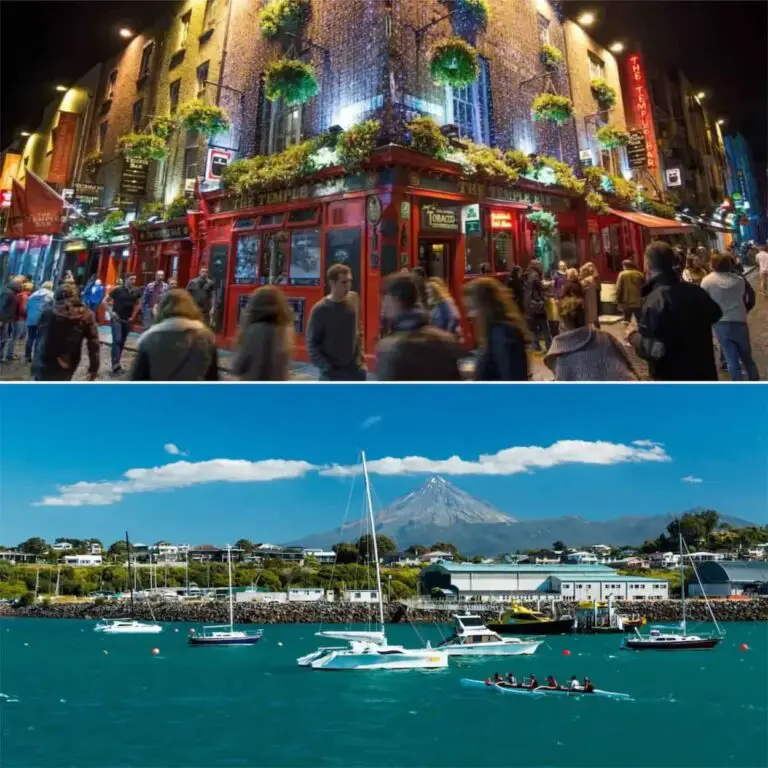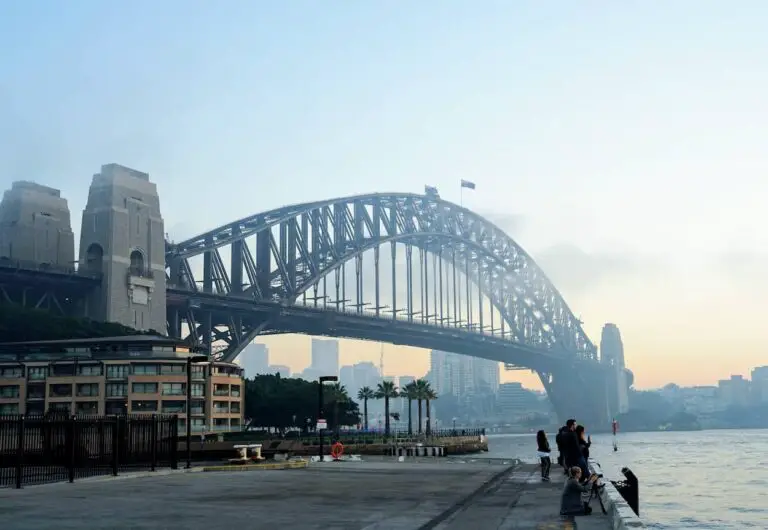Cost of Immigration To New Zealand in 2024

Have you been wondering about immigrating to a land far off? Before you start your journey to New Zealand, it’s crucial to know how much the process will cost you. Not all people can afford to move to this country due to the high cost of living and the initial costs involved. Needless to say, the process of immigrating to New Zealand is a pretty expensive deal.
The average cost of immigration to New Zealand in 2024 is roughly between NZ$23,000 (US$14,000) to NZ$46,000 (US$28,810). These estimates are only for a single person, and for the expenses within New Zealand, as a family, it’s recommended to budget at least NZ$48,000 (US$30,000) for the move to NZ.
If you are serious about immigrating to New Zealand, firstly, questions about the cost will pop up in your head. You need to consider the preparation costs, such as visas, medical tests, and flights. Afterwards, you need to know the rent, health insurance, car insurance, shipment expenses, and so on.
In this article, I will break down the entire cost of immigration to New Zealand as of 2023, which is based on the amount I have spent and the numbers that are typical among other immigrants. Also, read our guide on top mistakes to avoid when moving to New Zealand.
Watch a full video on the cost of moving to New Zealand in 2023.
How much does it cost to move to New Zealand?

The cost of moving to New Zealand is a combination of expenses for preparation and other expenditure when you set foot here.
Most people in New Zealand earn wages or salaries weekly and pay utilities, rent, and other expenses weekly – so to make it a true reflection of the life you will lead in this beautiful country, all the recurring costs below are mentioned for weekly estimates.
Here are some estimated costs of moving to New Zealand:
Visa fees: NZ$211 – NZ$4,880 (depending on the type of visa)
There are a range of visa options available if you want to move to New Zealand – the cost and procedures vary depending on the type of visa you choose.
If you want to settle permanently, you may apply for Permanent Resident visa so you can have all rights of a Kiwi resident and not worry about applying for visas repeatedly.
However, you need to be eligible first, and it costs a little more than other visa types, second. The initial costs of application start from NZ$240 and continue upwards as you proceed. Still, I recommend that if you are moving here for good and have a chance to get a residency, then do it right, once and for all.
For instance, you get a permanent residency by qualifying for a Skilled Migrant category resident visa. It will allow you to put your skills to some technical work. The cost starts from NZ$4,880.
If you want to apply for an Accredited Employer Work visa, the starting cost is about NZ$750. This visa allows you to work in New Zealand for a qualified employer, and most application decisions are made within 60 days.
A Skilled Migrant Category (work visa) is the most common visa type and will cost you NZ$2,480 when applying from outside of New Zealand. The most expensive visas are for Entrepreneurs (NZ$6,860) and Investors (NZ$7,780).
Read the latest updates on the Skilled Migrant Category Resident Visa.
If you wish to visit and explore the country before making a final choice, then a Visitor Visa fee starts from NZ$211, and you can get it in approximately 36 days.
If you’re considering getting practical in your field of study, then New Zealand is the right choice. The Student Visa starts from NZ$375 and is available for all who are eligible to study in New Zealand and can afford the tuition fees. In addition to this fee, expect to pay an average of NZ$40,000 – NZ$65,000 for a degree program as an international student.
Lastly, you can see current visa fees for each visa type on Immigration New Zealand.
Immigration agent fees
If you decide to go with an immigration agency instead of applying on your own, be prepared for some hefty invoices.
The cost varies based on the country you are applying from, the immigration agency, and the number of people in your application. Generally, one can pay anything from NZ$1,000 to NZ$10,000 to work with the agency.
For instance, here are the fees of the Pathwaysnz immigration agency, which is based in New Zealand:
- Work Visa – NZ$1,500 – NZ$3,000
- Family residence – NZ$2,000 – NZ$4,000
- Skilled Migrant residence – NZ$4,500 – NZ$6,500
- Visitor or Student Visa – NZ$500 – NZ$2,000
The immigration fees for Entrepreneurs (NZ$6,860) and Investors (NZ$7,780) are some of the highest. However, investor visas are currently closed while NZ immigration has introduced a new visa called Active Investor Plus Visa.
Documents
Preparing the documents and papers involve fees from various government departments; don’t forget to include those. Also, if your documents are not in English, then you might incur some translation costs for official translations.
In New Zealand, the Justice of Peace service is available for getting your official copies certified, but your country might have a different system where you will need to pay a fee for this service. Justice of Peace services are free in New Zealand.
Depending on the visa you are applying for, the range of documents might vary, some typical papers include birth certificates, marriage certificates, professional qualifications, bank account statements, health insurance, police certificates, job references, etc.
Medical tests: NZ$480 – NZ$650
Before you arrive in New Zealand, you have to go through medical tests, which are done only by eligible and approved by Immigration NZ experts. They must be authorized by the New Zealand government in your country of residence or in New Zealand (if you are onshore).
For instance, I have made my medical test already in New Zealand because I was staying here on a visa that didn’t require tests, but then I applied for another one, where medical assessment is mandatory.
Although this is a one-time expense, these services aren’t cheap. You will either have to do a chest X-ray only or a full medical test, depending on your country of origin and visa type.
The chest X-ray costs between NZ$125 and NZ$200, while a full test costs around NZ$480 – NZ$650, depending on the provider. First-time applicants usually have to go through a full test, and you can check the prices online. Remember to book considerably in advance instead of leaving it for the last minute as the waiting time is usually very long.
Qualification assessment fee: NZ$200 – NZ$600
For the educational degrees, certificates, and qualifications obtained overseas, you will need to get them converted to their equivalent qualifications according to the New Zealand education system. This solely will depend on the country of origin of the documents, the language, and the qualifications on itself.
Generally, if you have finished school/university in the Western world, it’s accepted in New Zealand without additional work and money from your side. But you would need to check it for each particular case.
Based on how many documents you need to be assessed, the fee will typically range between NZ$200 – NZ$600.
Professional registration fee
If you are a professional in a specific trade, you might need to register yourself within New Zealand to work in that industry. These registrations have a one-time or annual fee and vary based on industry. Sometimes, there also might be some training or test that you have passed before getting your registration.
For example, a practical certificate for medical professionals costs $927, according to the Medical Council of New Zealand.
Police clearance certificate
Some visa types will require you to obtain a police clearance certificate.
An up-to-date police clearance certificate will be needed for any country where you have lived in the last 5 years. While it’s usually not a significant expense in the greater scheme of things, it’s good to know how much this document will cost and how long it takes for the police clearance certificate to arrive.
You should think about it in advance as police clearances can take a long time to proceed.
We can’t give an estimate as it depends on the country you are traveling from and isn’t a New Zealand expense.
Also read: How to get New Zealand citizenship.
Flight: NZ$800 – NZ$3,000
It’s a painful fact that New Zealand is physically isolated from other countries, so inevitably, the flights aren’t cheap. Also, it hardly falls on many travel routes, so limited airlines fly on this route. I would recommend Skyscanner for cheapest rates.
Usually, you would need to change planes at least once, depending on where you fly from. Americans are among the lucky ones and can fly to NZ directly.
Ticket fares vary based on where you travel from and how many dependents are with you. As a general estimate, you should set aside roughly NZ$800 to NZ$3,000, depending on the country and airlines you choose.
A pro tip is avoiding travel during the peak holiday season (November to February) because the ticket price is very high and limited at that time. If possible, book your flights during other months, and also, if you have the liberty of time at hand, then book as much in advance to buy cheaper tickets, preferably about 3 months beforehand.
Security deposit and rent: NZ$450 – NZ$800
When moving to a new country, you are probably going to rent first before buying a house. Rent is paid weekly in New Zealand. Rental prices are high in main cities like Auckland and Wellington, but some cities could be affordable. In another article, I have covered topics like where you can find the cheapest rent, so if you are keen on saving some money initially, opt for one of those places.
Rents will vary depending on the city, suburb, and distance to the city center, however, for an apartment, consider setting aside roughly NZ$450 – NZ$700 per week. For a house, you can set aside NZ$550 – NZ$850 per week. Some people prefer flatting (house sharing), renting only a bedroom in a shared house. It’s the cheapest option, costing you between NZ$150 and NZ$400 per week.
In addition, landlords or property management companies ask for a 4-week security deposit that you can get back if there are no damages to the rented property.
The security deposit, known as a bond, must be taken into account for your initial expense when you move to New Zealand, so be ready to part with 4x the amount of weekly rent as the deposit.
Emergency savings: NZ$2,000 – NZ$5,000
We all hope that we will never run into an emergency, but it’s always a wise move to set aside some funds for any unforeseen circumstance. Especially with the relocation to a new country, so many unknown things might take you by surprise, so having emergency funds will be the saving grace for you in such situations.
Keep at least NZ$2,000 – NZ$5,000 for emergency savings, depending on your pocket and circumstances. However, take our word for it – always have these savings for a rainy day, and no matter how tempted you are, do not touch these for any impulse buys, hoping to replenish them later.
Health insurance: NZ$700 – NZ$1,200
The good news is that healthcare is free for under 12-year-olds in New Zealand regardless of visa status, so at least that end is sorted. However, adults must pay for GP visits and other procedures if they couldn’t qualify for public healthcare. In such scenarios, health insurance comes in very handy.
Health insurance for a single healthy person ranges roughly between NZ$700 – NZ$1,200 per year, depending on how much coverage you would like to add to your insurance. But as you age and as you attract more illnesses, then ultimately, the costs are bound to get higher.
If you want to get health insurance for the whole family, it’s better to opt for a plan as it will get you better deals.
I would recommend signing up for Cigna Global, it’s the best expat insurance.
Weekly expenses without rent: NZ$300 – NZ$620
It’s also a good idea to consider your weekly expenses (other than rent), like utilities and groceries, so you know how much you will be spending every week at a bare minimum.
These expenses vary considerably based on where you shop, how often you cook in a week vs dining out, the number of people living in a family, etc.
A rough estimate for an individual would be around NZ$300 – NZ$395 weekly, and for a family, it comes to about NZ$360 – NZ$620 per week.
Based on your lifestyle, you may want to add other expenses like traveling to explore this new country, commuting to work, dining out, gym, movies, etc.
Shipping: NZ$2,000 – NZ$5,000
Some people prefer to sell off everything and buy stuff when they move countries – this saves them the hassle and expense of shipping stuff overseas, insurance, and not knowing whether it will fit in or suit the new place.
However, others are unwilling to part with their hard-earned stuff, not to mention all the loss of money in selling secondhand items and buying needed supplies when you are new to the country.
Whichever choice you make, you will need to set aside a considerable amount to cover the expenses of either shipping or buying things from scratch.
Shipping will depend on how much luggage and personal items you take, what shipping options are available, how much the distance between the two countries, whether you want to get insurance for your belongings, etc.
For example, a student moving from the UK to New Zealand will cost nearly NZ$2,000, and a 2-bedroom apartment move will be NZ$5,000.
Car and insurance: NZ$13,950 – NZ$25,000
You may want to rely on public transport or a rental car initially when you move. Or, you might want to buy your car when you move to New Zealand (don’t worry, they are not expensive).
If you opt for your car, don’t forget to include insurance in your expense estimate. No matter how basic the insurance is, having one is a good idea.
If you want to buy a brand new car, the cost range will be roughly between NZ$25,000 – NZ$50,000, while a used car in good condition will cost almost NZ$12,950 – NZ$18,000. That said, New Zealand is a dreamland for secondhand Japanese cars, you get one in a decent share for as little as NZ$2,000 – NZ$5,000!
Regarding fuel, petrol in NZ is cheaper than in the UK but more expensive than in the US. You can budget about NZ$80 per week for an average commute and some travels around.
If you plan to use public transport, weekly expenses might range between NZ$60 and NZ$80. A travel pass usually costs NZ$225 per month in one of the main cities. This estimate is for cities where you can easily get to and from one place to another using buses.
Cost of living in New Zealand
The average cost of living in New Zealand sums up to NZ$3,500 to NZ$4,500 for a single person. An average salary of NZ$58,000 will give you a suitable income of NZ$3,891 monthly, which is sufficient enough to cover the main expenses.
The estimated cost of living for a family of four is NZ$3,464, and for a single person, NZ$965, exclusive of rent. The median house price across New Zealand was NZ$991,674 (US$619,410) in the summer of 2022.
Besides rent, the usual variable costs include insurance (NZ$130), gym (NZ$107), groceries (NZ$950), and internet (NZ$85).
The cost of education is free for all school levels. But the fees for a good university in the big cities for domestic students are between NZ$6,500 and NZ$25,000 for undergraduate and postgraduate programs.
At the same time, international students pay an average of NZ$40,000 – NZ$65,000 for a degree program. If you want to learn more about the cost of living and factors such as housing, insurance, salaries, entertainment, food, and much more, check out our article on the cost of living in New Zealand in 2023.


![Can You Move To New Zealand Without a Job Offer? [2024]](https://simplenewzealand.com/wp-content/uploads/2022/12/pexels-pascal-renet-1089303-768x512.jpg)
![Why Are People Leaving New Zealand? [2024]](https://simplenewzealand.com/wp-content/uploads/2023/03/romain-v-ndfQe4ZR_qg-unsplash-1-768x513.jpg)
![Moving To New Zealand as a US Citizen: How To Guide [2024]](https://simplenewzealand.com/wp-content/uploads/2023/04/Blank-2-Grids-Collage-copy-1-768x768.jpg)


![New Zealand vs UK: Which Country Is Better For Living? [2024]](https://simplenewzealand.com/wp-content/uploads/2023/01/andreas-sjovall-ZZUPu8ARD8U-unsplash-768x432.jpg)